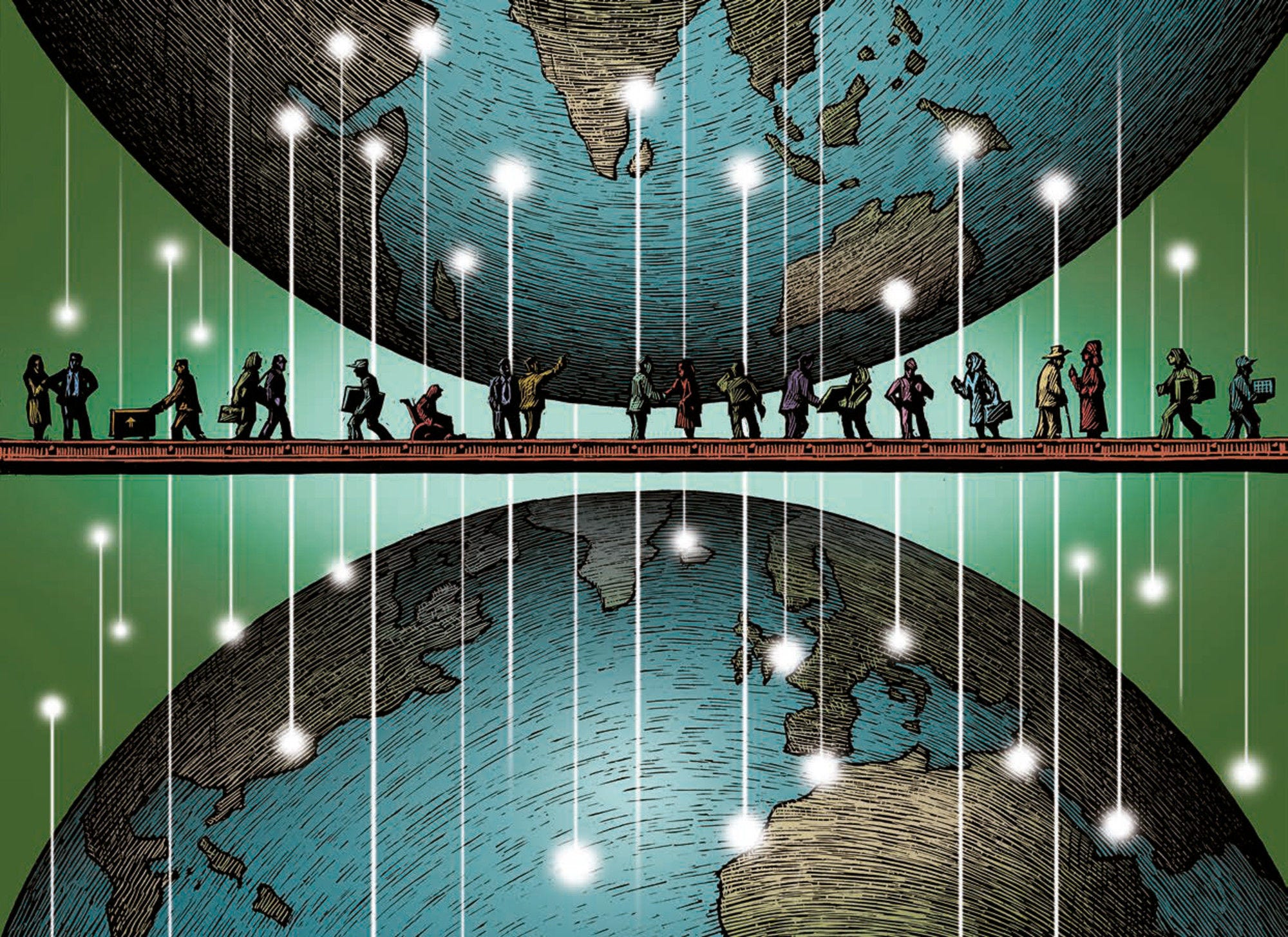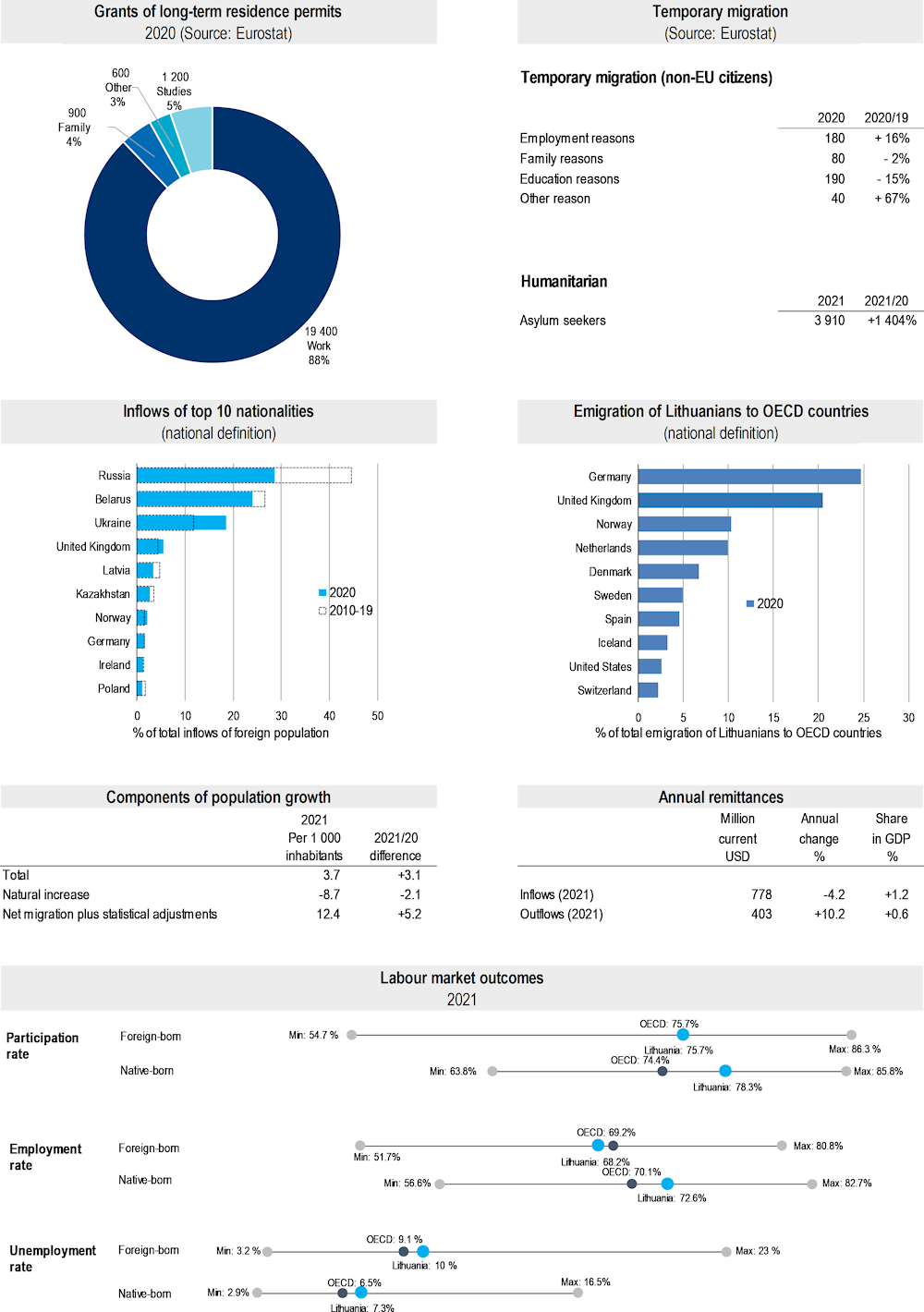In 2020, 22 000 new immigrants obtained a residence permit for longer than 12 months in Lithuania (excluding EU citizens), 5.2% more than in 2019. This figure comprises 87.9% labour migrants, 4.1% family members (including accompanying family), 5.3% who came for education reasons and 2.8% other migrants. Around 200 short-term permits were issued to international students and 200 to temporary and seasonal labour migrants (excluding intra-EU migration). In addition, 4 700 intra-EU postings were recorded in 2020, a decrease of ‑54% compared to 2019. These posted workers are generally on short-term contracts.
Ukraine, Belarus and Russia were the top three nationalities of newcomers in 2020. Among the top 15 countries of origin, Belarus registered the strongest increase (900) and Russia the largest decrease (‑47) in flows to Lithuania compared to the previous year.
In 2021, the number of first asylum applicants increased by 1 400% to reach around 3 900. The majority of applicants came from Iraq (2 400), Belarus (250) and Congo (150). The largest increase since 2020 concerned nationals of Iraq (2 400). Of the 3 280 decisions taken in 2021, 13% were positive.
Migration policy underwent significant changes in 2021 and 2022. Widespread labour shortages meant most social and economic policy measures were directed towards facilitating labour and business migration and attracting investors. They included allowing foreigners to acquire the status of an electronic resident (e‑resident), giving them access to Lithuanian administrative, public or commercial services by remote means.
In 2021 a quota was set for foreigners entering Lithuania to work in an occupation included in the List of Shortage Occupations. Once the quota is exhausted, foreigners whose occupation is included in the List are required to obtain a work permit.
In January 2021, and again in June, the Law on Investment was amended to speed up the issuance of residence permits for investors and make it easier to transfer employees into Lithuania.
To facilitate the entry into Lithuania for highly qualified workers, the Law on Legal status of foreigners was amended in March 2021 to foresee the possibility for highly qualified workers to start their employment after they applied for temporary residence permit.
Amendments to the Law on the Legal Status of Foreigners in March 2021 eased requirements and improved conditions for third-country nationals who study or have completed their studies or research in Lithuania. Changes included exemptions from work experience requirements, permission to start working immediately after study and the right to work with the permit issued for the purpose of job searching.
Foreigners whose period of legal stay in Lithuania expired when Lithuania introduced quarantine period in response to the pandemic (from 16 March 2020 to 16 August 2020) and who were unable to leave the country were allowed to stay up to two additional months.
As a result of the political crisis triggered by the presidential elections in Belarus, the Lithuanian Government took steps to facilitate labour immigration for citizens from there, including issuing temporary residence permits and introducing measures to encourage the transfer of Belarus business to Lithuania. The sudden increase in the flow of irregular migrants from Belarus in July 2021 led the Lithuanian Government to declare a state of emergency, strengthen border protection, including the installation of a physical barrier, and initiate a wide range of changes in the Law on the Legal Status of Foreigners.
On 30 June 2022, Seimas adopted amendments to the Law on Legal Status of Foreigners. Amendments foresee simplification of immigration rules for (highly qualified) workers, students, and start-ups from 1 August 2022, and the possibility to apply for temporary residence permit while abroad via intermediaries (external service provider) from 1 January 2023.
For further information: www.migracija.lt | www.stat.gov.lt | https://www.emn.lt/en/

